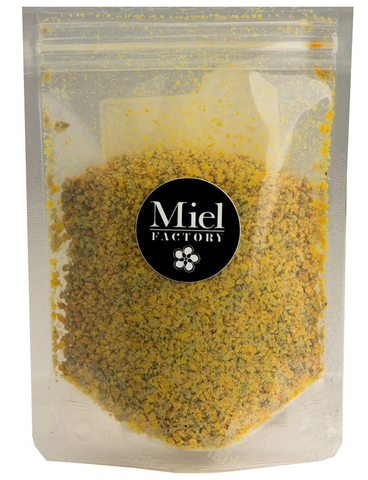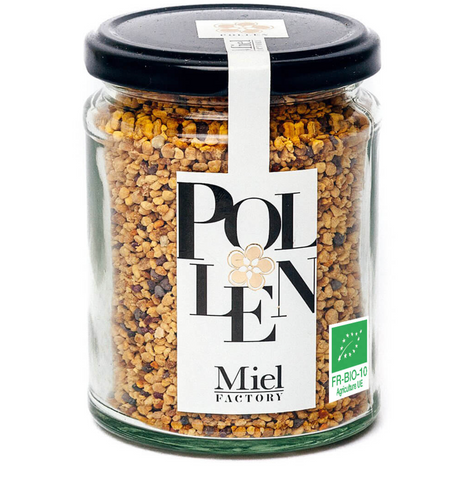The pollen is a valuable ingredient often praised for its many health benefits. However, a question that often sparks debate is which form of pollen is more beneficial: fresh or dry? In this article, we will explore the differences between fresh pollen and dry pollen to determine the best option for your health and well-being.
Pollen Frais : Natural and Powerful
Fresh pollen is exactly what its name implies: pollen that has undergone no treatment or processing. It is harvested directly from flowers by bees and is usually sold in granule or pellet form. Fresh pollen is considered the most natural and potent form of pollen because it retains all its enzymatic, nutritional, and biological properties.
The health benefits of Fresh Pollen
-
Nutritional Richness: Fresh pollen is a natural source of vitamins, minerals, amino acids, and antioxidants. It also contains enzymes beneficial for digestion.
-
Medicinal Properties: Fresh pollen is often used to strengthen the immune system, improve digestion, increase energy, and reduce symptoms of seasonal allergies.
-
Maximum Absorption: Due to its natural and unprocessed form, fresh pollen is generally better absorbed by the body, allowing optimal use of its nutrients.

Fresh pollen harvested in France
Dried Pollen: More convenient but less effective
Dried pollen, on the other hand, undergoes a drying process to extend its shelf life and make it easier to store and transport. This drying process can lead to the loss of some heat-sensitive enzymes and nutrients, potentially reducing its nutritional value compared to fresh pollen.
The benefits of dried pollen
-
Long Shelf Life: Dried pollen has a longer shelf life than fresh pollen, making it convenient for long-term storage without risk of spoilage.
-
Ease of Use: Dried pollen is often sold in the form of pellets, powder, or capsules, making it easy to measure and consume, unlike fresh pollen which may require a bit more preparation.
-
Accessibility: Dried pollen is generally easier to find on the market than fresh pollen, making it more accessible for those looking to incorporate pollen into their daily diet.

Organic dried pollen harvested in Spain
Conclusion: The choice depends on your needs
So, which form of pollen is the best? The answer largely depends on your personal needs and preferences. If you are looking for the most natural and potent form of pollen, fresh pollen is probably the best choice for you. However, if convenience and long shelf life are priorities, dried pollen may be better suited to your lifestyle.
In any case, make sure to choose high-quality pollen, preferably organic and from reliable sources. Whether you opt for fresh or dried pollen, incorporating this valuable ingredient into your diet can bring many benefits to your health and overall well-being.



